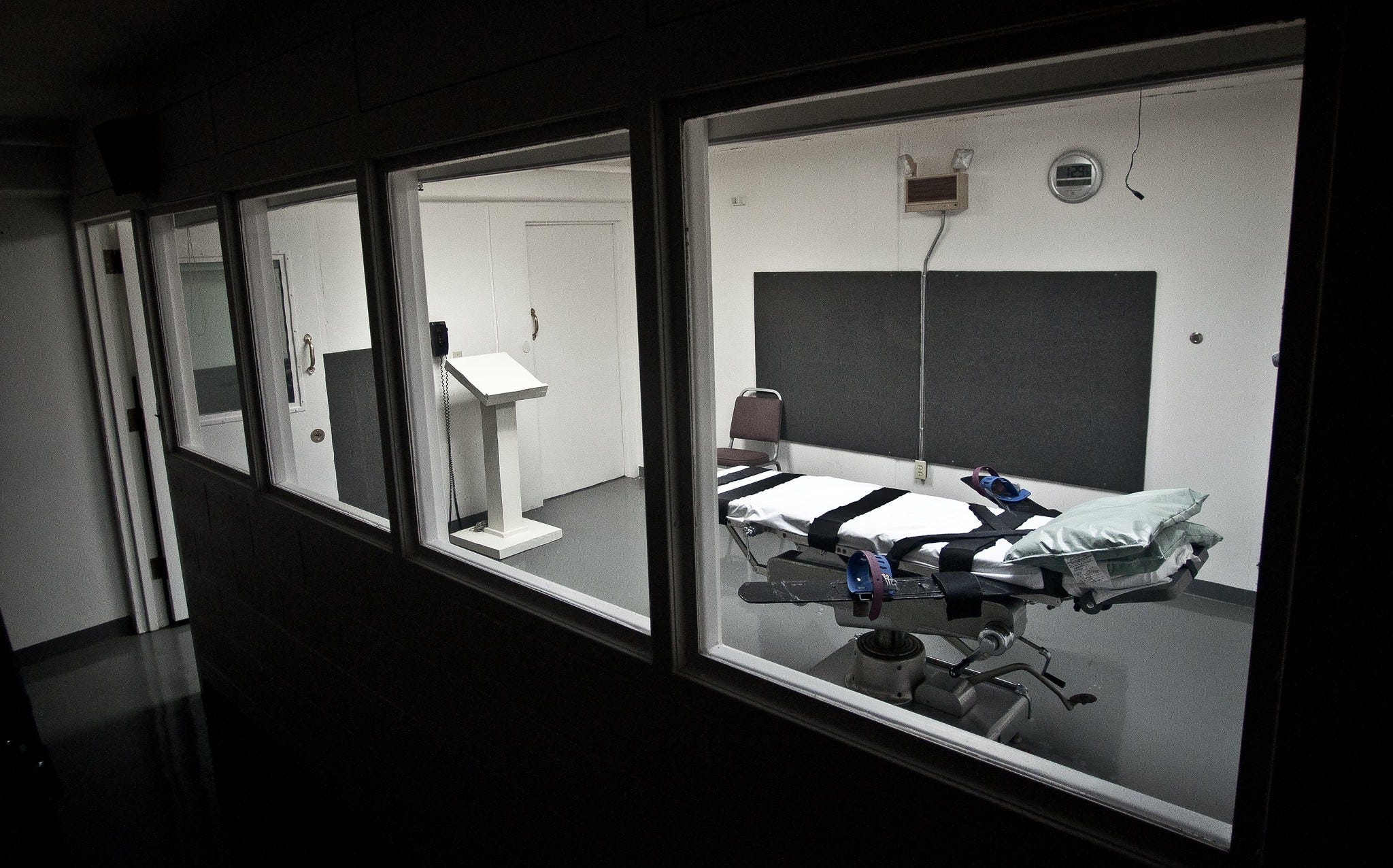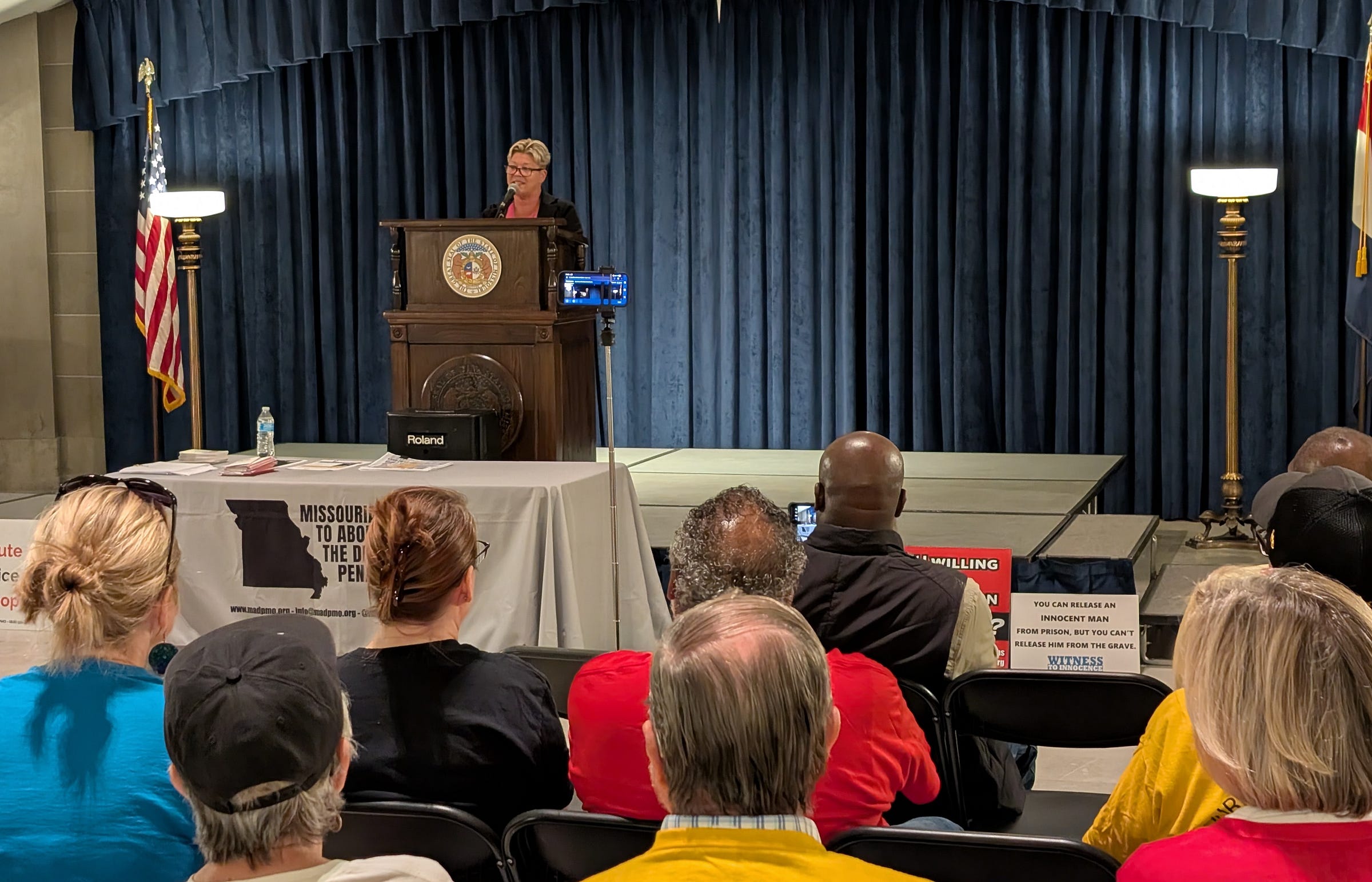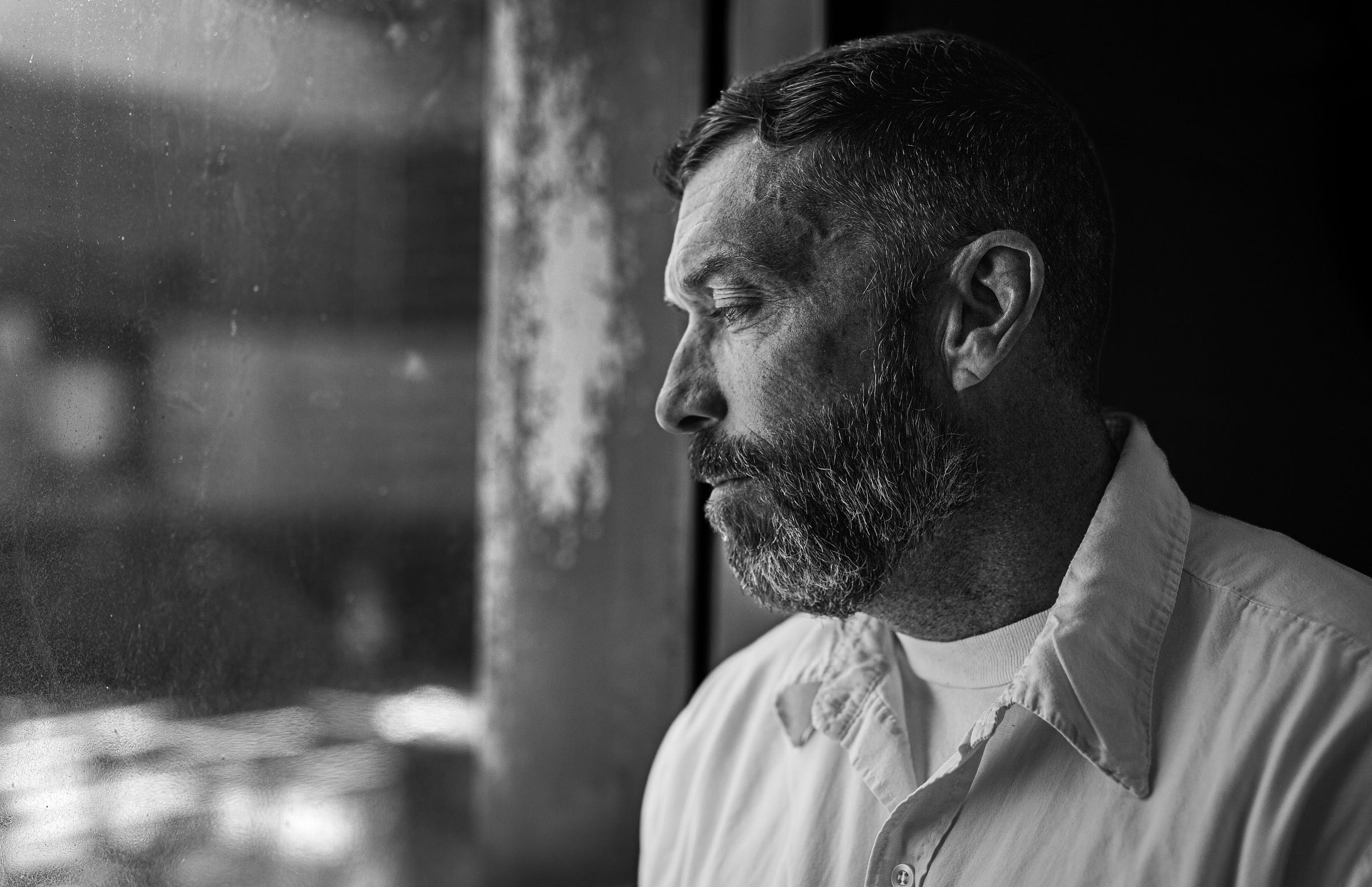Missouri Blocks Spiritual Advisor Request for Prison Pastor’s Execution
As Missouri prepares to execute a man who has served as a Christian minister behind bars, the state is denying the request for his chosen spiritual advisor to be present with him during the execution — despite a 2022 U.S. Supreme Court decision specifically mandating states allow a spiritual advisor to be present to pray with and touch the condemned individual. The Missouri Department of Corrections insists that Lance Shockley’s request to have an ordained daughter present as his spiritual advisor goes against the MDOC’s policies, even though MDOC has yet to cite an actual policy adopted since 2022 to govern spiritual advisors in the death chamber.
In a flurry of legal filings over the weekend, MDOC and Shockley’s legal team sparred over his spiritual advisor choice. MDOC officials continue to point to pre-2022 policies and legal precedents even though the U.S. Supreme Court told states to develop policies specifically on allowing spiritual advisors to be in the room during the last moments. MDOC also falsely claims they have not previously denied a spiritual advisor request and complains that spiritual chaplains during previous executions spoke to reporters about the experience (including a citation to a piece by A Public Witness that MDOC alleges is inappropriate).
Shockley faces execution after his conviction in the 2005 murder of Missouri State Highway Patrol Sgt. Carl Dewayne Graham Jr. despite lingering questions about the case. He’s maintained his innocence, there’s no direct evidence or eyewitnesses tying him to the crime scene, and there was egregious misconduct by the jury foreman. Additionally, the jury did not even sentence him to die but a judge alone gave that sentence after the jury deadlocked. Despite all of that, Missouri Gov. Mike Kehoe, a Catholic who has called himself “pro-life,” announced Monday (Oct. 13) he would not grant clemency. With Shockley’s execution on Tuesday approaching, this issue of A Public Witness unpacks the debate over his religious freedom rights for his final moments.
Dispute Over Who Counts as a Spiritual Advisor
Both of Shockley’s daughters are ordained and have received an endorsement from a Missouri church, thus meeting MDOC’s requirements for spiritual advisors. Morgan, who works as a missionary, is endorsed by a non-denominational church in Van Buren and Summer is endorsed by an Assemblies of God congregation in Poplar Bluff. Thus, Shockley requested Summer be allowed to administer communion and anoint him with oil prior to the execution and requested Morgan be present with him in the chamber.
Morgan received confirmation that she had been approved by the MDOC coordinator for religious and spiritual programming to serve as a spiritual advisor for the execution, but that was later overruled by the warden, who also denied Summer’s application. In both cases, MDOC insists Shockley cannot have a family member as a spiritual advisor. Shockley’s legal team notes that the 2016 MDOC policy on spiritual advisors does allow a family member to serve. MDOC policy D5-3.3 does, in fact, include a provision “in the event the clergy or spiritual advisor is an immediate family member of the offender.” But MDOC now insists Shockley must pick someone else to be in the chamber with him, claiming their policies — written before the 2022 U.S. Supreme Court case — do not allow immediate family members to serve in that way.
In lieu of an actual policy, MDOC refers to its ban on a family member serving during the execution as “the Department’s common sense approach.” MDOC insists that allowing family members to serve as the spiritual advisor in the execution chamber would create “a heavy risk to the dignity and solemnity of the execution, as well as the safety and security of the institution.” In particular, MDOC claims that having family members in the execution chamber would compromise the identities of the execution team, which is kept a secret. MDOC Director Trevor Foley claimed in an affidavit that a family member seeing personal identifying information about people on the execution team would be “particularly dangerous” in ways that are not true for other spiritual advisors. MDOC also suggests family members could interfere with the execution “through the introduction of various drugs,” attempt to “alter the offender’s vital signs,” or simply trip and inadvertently “dislodge or disrupt I.V. lines, restraints, or even pillows used for the offender’s comfort.” MDOC says a family member is more likely to trip because they will be more emotional.
MDOC also insists that “immediate family members are unique” since “even law-abiding citizens would be hard pressed not to interfere with the execution of their loved one.” However, all of the spiritual advisors in the death chamber thus far had to sign a statement agreeing not to interfere and were threatened with removal and prosecution if they failed to comply. Shockey’s team insists that a similar agreement and threat of prosecution could apply to Morgan and Summer.
Denying an Earlier Denial
At the heart of the legal conflict is the fact MDOC apparently still has not developed a policy to govern spiritual advisors in the execution chamber since the 2022 Supreme Court decision. As Chief Justice John Roberts wrote in the 7-1 ruling requiring states to allow spiritual advisors to pray and touch people during executions, “Timely resolution of such claims could be facilitated if states were to adopt policies anticipating and addressing issues likely to arise. Doing so would assist both prison officials responsible for carrying out executions and prisoners preparing to confront the end of life according to their religious beliefs.” Despite not having developed such policies, MDOC is claiming Shockley’s request goes against what is allowed.
Roberts added in his majority opinion that one advantage of states adopting “clear rules in advance” is the courts could avoid last-minute legal fights. MDOC is, in fact, complaining that Shockley is seeking an “11th hour” injunction to delay his execution because of the denial of his spiritual advisor requests. While MDOC insists on denying both the injunction filing and his accommodation request, Roberts argued that when disputes do arise, “The proper remedy is an injunction ordering the accommodation, not a stay of the execution.”
This is not the first time MDOC has invoked a nonexistent policy to deny a spiritual chaplain request. After allowing two Christian ministers to be present in executions following the U.S. Supreme Court’s ruling, MDOC denied the request of the first Muslim executed since that 2022 decision. As a result, Leonard “Raheem” Taylor was alone in the room while executed on Feb. 7, 2023. MDOC denied Taylor’s request for his spiritual advisor to be present, claiming he waited too long according to the policies. When I requested a copy of such a policy, a MDOC communications director admitted, “It’s a procedure, rather than a policy.” Yet, despite that, MDOC claimed in a filing in Shockley’s case, “Until now, the Missouri Department of Corrections has never refused an inmate’s designation of a spiritual advisor for an execution proceeding.”
The claim of not having made a previous denial is all the more significant given the assertion by MDOC that they will still allow Shockley to pick someone else. With the permission for Shockley to choose someone this late, it once again raises questions as to why Taylor was told at a similar timeframe that it was too late.

Complaining About Media Coverage of Spiritual Advisors
While claiming family members would be problematic as spiritual advisors, MDOC’s director also complained in his affidavit about spiritual advisors being present at all. He alleged that five of the seven previous spiritual advisors who have been present in Missouri’s death chamber since the 2022 ruling “violated pledges” made to MDOC. Another filing claims the purported violations are because the ministers spoke with the press afterward. Among the news reports shared as “evidence” of such violations is a piece I wrote for A Public Witness sharing Rev. Lauren Bennett’s experience.
MDOC included as an exhibit the document it requires spiritual advisors to sign. It includes a provision that they agree not to disclose identities of MDOC employees or the execution team or any other information that “I may learn or obtain through my participation as a spiritual advisor in this execution.” Bennett shared no information about the identities of those involved in the execution. Instead, she told the story of ministering to someone on death row. The piece is about her and Amber McLaughlin and their last conversations and prayers. Then Bennett added one thing that goes beyond what was in public news reports from those watching in the witness rooms. Bennett heard a few last words beyond the otherwise reported last words. Those words suggested the lethal injection protocol was more painful than MDOC suggests.
Looking at the other articles cited suggests MDOC sees any comment to the media as a violation. A short piece on an anti-death penalty site (based on Word&Way reporting) was used by MDOC to suggest Rev. Melissa Potts-Bowers had also violated the pledge. Yet, the entirety of her comments about the execution were her recounting a few lines of conversation between herself and Michael Tisius, and then this conclusion: “I didn’t have to talk very long. He was gone quickly. But I continued to speak until the guard came in and escorted me out.” That’s what MDOC cites to claim spiritual advisors are violating the rules, and thus why family members should be barred (even though none of the “offending” ministers were family members).
Shockley’s legal team responded to MDOC’s complaints about other spiritual advisors, arguing that “none of the articles cited … feature spiritual advisors disclosing secreted information about the executions they witnessed.” The lawyers added, “To be sure, none of the articles divulge names, physical characteristics, or any other identifying features of anyone at Bonne Terre. The articles focus on the relationship between the condemned and their spiritual advisors. Based on the limited information shared about the signed agreements, there is no evidence to suggest any have ever been violated.”
Additionally, Shockley’s attorneys noted that the allegations against the other spiritual chaplains in no way suggest Morgan or Summer would violate any policies, especially since there is no evidence they have “ever caused any problems in the nearly two decades of visiting Mr. Shockley in prison.”
Despite the lack of secret information in any of the news articles, U.S. District Judge Stephen R. Clark accepted MDOC’s claim as he denied Shockley’s legal claim on Saturday. Clark, appointed to the court by Donald Trump, claimed the news articles showed “a blemished history” for the spiritual advisor program, adding, “Of the seven most recent executions in Missouri, state officials have required those spiritual advisors to pledge, in writing, to maintain the confidentiality of what occurred in the execution chamber; of the seven, five — over 70% — have violated their written pledges.” Clark did not note in his ruling if he actually read A Public Witness and the other cited articles to make that determination or if he just accepted MDOC’s claim.
Shockley appealed Clark’s denial to the U.S. Court of Appeals for the Eighth Circuit, which upheld Clark’s decision on Monday. The last remaining legal resort on the question of spiritual advisors is the U.S. Supreme Court.
Questioning Religious Sincerity of a Prison Minister
MDOC also claims in its filing that Shockley isn’t being sincere in his spiritual advisor request. In addition to insisting that rejecting his chosen spiritual advisors “is not a substantial burden on Shockley’s religious exercise,” MDOC suggests he isn’t being sincere in requesting Morgan and Summer.
“Although Shockley attempts to make his case look like it raises a religious freedom issue, it does not. Shockley is really seeking to have contact visits with close family members and is using freedom of religion as a ruse to either accomplish this goal, or to halt his execution,” MDOC alleges without evidence. “The Department’s decision not to permit family members to have contact visits or to be present in the execution chamber during the execution is based on concerns about institutional safety and security and the solemnity and dignity of the execution, not religious discrimination.”
More bizarrely, Judge Clark offered “alternative accommodations” Shockley could use instead of one of his daughters. Among those was that Shockley could have one of his lawyers serve him communion and anoint him with oil. Shockley’s lawyers dismissed the idea as absurd in their appeal: “To be clear, none of Mr. Shockley’s attorneys are spiritual advisors — neither pursuant to MDOC nor in general. A situation where someone who is not a spiritual advisor in any way being a substitute for a person’s actual spiritual advisor cannot suffice as respecting the condemned’s religious beliefs.”

Shockley’s team insists that his religious sincerity cannot be questioned. And the record seems quite clear. For five years, Shockley served as the designated Christian representative in the prison to work with staff and outside volunteers to plan worship services, baptisms, and other special moments. A graduate of Kairos Prison Ministry International, he’s also encouraged other prisoners in the non-denominational program that seeks to build faith, community, and pro-social behavior. He gave the commencement address for those who went through the program last year.
Shockley also founded a shoe ministry where he hand-stitches repairs to shoes for prisoners in need, and he collects donations from other prisoners to give a “welcome package” of food, clothing, and toiletries for new prisoners as he also seeks to befriend them and get them connected in worship and other community activities. Additionally, Shockley served as the president (until his execution date was set) of the Restorative Justice Initiative that coordinates volunteer opportunities for prisoners, and he was hand-picked by the prison’s deputy warden to serve in the inaugural class of leaders in the Inmate Peer Support program, where they provide emotional assistance to other prisoners and help staff to de-escalate conflict.
Thus, Shockley’s legal team argues that the denial of his choice of spiritual advisors “inflicts on his right to religious liberty.”
“Mr. Shockley’s request to have his two ordained daughters serve as his spiritual advisors is based on his sincerely held religious beliefs,” his lawyers added. “Mr. Shockley’s desire to have them minister to him is borne of a genuine respect for their religious leadership. . Denying Mr. Shockley the spiritual advisor of his choice during those crucial final moments of his life alters the entire occasion.”
“The public has an interest in ensuring state actors respect the religious rights of all persons and protect all rights granted to the public under the U.S. Constitution,” they added. “A public denial of a person’s constitutional right to the free exercise of religion is a threat to everyone’s protections under the Constitution.”
As a public witness,
Brian Kaylor




Brian, I am a little late posting my response. I very much appreciate your article, and am deeply troubled be the course of action being taken by the Department of Corrections in denying basic religious liberty to a condemned man. The failure of DOC to have drafted an appropriate policy in conformity with the Supreme Court decision is simply a deliberate action to ignore the Court, as we are going to see more and more at different levels of government. The attempts at justifying the DOC action would be laughable, if not for the seriousness of the situation. Of course, the Governor with a phone call, as a "Christian" could take care of the matter and order the warden to allow the spiritual advisor to be present, if not in fact both of his daughters. Having not studied the conviction, I can offer no comment on that, and with the Governor's failure to grant clemency that matter has been rendered moot. The really PRO-LIFE course of conduct would be to comute the sentence to life in prison, then the possibility of correcting an injustice in the conviction, if that would prove to be the case, would be possible.